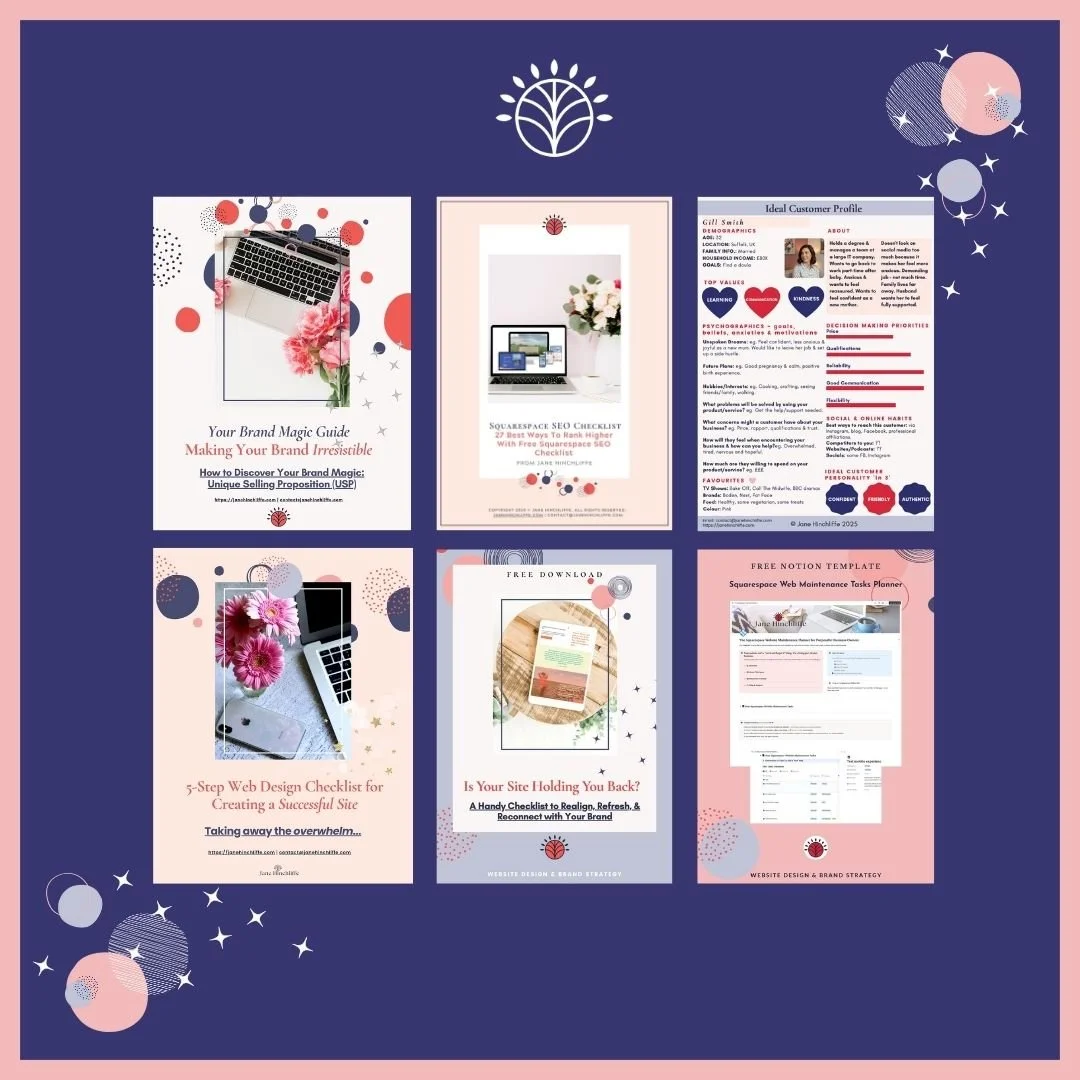Verbal Branding - The First Component of Brand Identity
Welcome to Part 2 - Brand Identity - Verbal Branding.
(Here’s part 1 where I explain the 3 components of brand identity ie. verbal, visual and emotional).
Today we’re focusing on your brand having a verbal identity, so open up a Google Doc, or grab a notebook/pen and start making some for your business.
1. What Is a Verbal Identity?
Having a verbal identity for your business is how you articulate and communicate your brand through your words and how you use them.
This is unique to your business and its personality.
2. Why Do I Need a Verbal Brand Identity?
Verbal branding is the foundation of your brand.
Spending money on branding strategy and visual branding ie. your logo, graphics, photos etc. is telling half the story.
Without the verbal foundation, your business will feel off-kilter and unbalanced.
You might well have beautiful imagery but without the right words to articulate your values, it won’t feel cohesive and will lack harmony.
3. How Does Having a Verbal Brand Identity Help My Brand and Business?
It helps your business to:
Communicate your brand message so that there is clarity and cohesiveness throughout.
It enables you to shine and get noticed amongst your competitors. It sets you apart!
Infuse your brand personality with your attitudes, values and views.
It’s a great opportunity to share those quirks and aspects of your brand’s personality that make your business authentic, relatable and likeable.
“Having a successful verbal brand identity enhances & positively impacts your brand. A poor verbal identity sends mixed messages, creates confusion & can undo all your hard work.”
4. What’s the MakeUp of a Verbal Brand Identity?
Consider the following five headings and see how they fit into your business. Permit yourself to have a bit of a brainstorm (always fun)… :)
1. Brand Tone, Voice and Language
Your brand’s personality comes to life with the words and language you use.
Remember to use the same tone in all your communications whether that’s chatty, serious, inspirational, assertive, understanding, inclusive, or formal and this will also help you choose the best language ie. keywords and phrases.
Things to think about. When do you capitalise? Do you spell out numbers? Do you use slang? Emojis? Write out dates in full, or not?
What ‘we say’ or ‘don’t say’. Do you include swearing (or not), do you use colloquial language, do you or should you, leave any words out that don’t fit in with your verbal branding?
2. Brand Values/Personality
You may or may not share your values publicly but they’re great to refer to as they help you to be ‘dialled in’ with your brand.
3. Brand Name
A unique name or, if impossible, make it memorable. It might also include keywords like ‘local’, ‘network’, ‘design’ etc.
4. Brand Strapline/Tagline or Description
This is a summary that encapsulates your whole brand for your audience. It should be used regularly in your message.
5. Brand Story or Brand Narrative
This helps your audience understand your business's emotional ‘why’ - it’s what you stand for and helps your audience identify with you and your offering. It’s like a manifesto. Great to use a shortened version on your home page and a longer version possibly on your ‘About’ page. Can be used across social media and other channels too.
So, there we have it! :) Verbal branding is not just an optional extra - it’s a fundamental part of your brand identity that helps to define and differentiate your business.
Remember, it's all about the tone, voice, and language you use, your brand values and personality, your brand name, your tagline or description, and your brand story. Each element is crucial for how your audience perceives your brand.
So take the time to think about your verbal identity carefully. It's a small investment that can pay off in a big way.
As always, if you want to delve deeper into this or any other aspect of website design and brand identity, schedule a Free Discovery Call with me.











